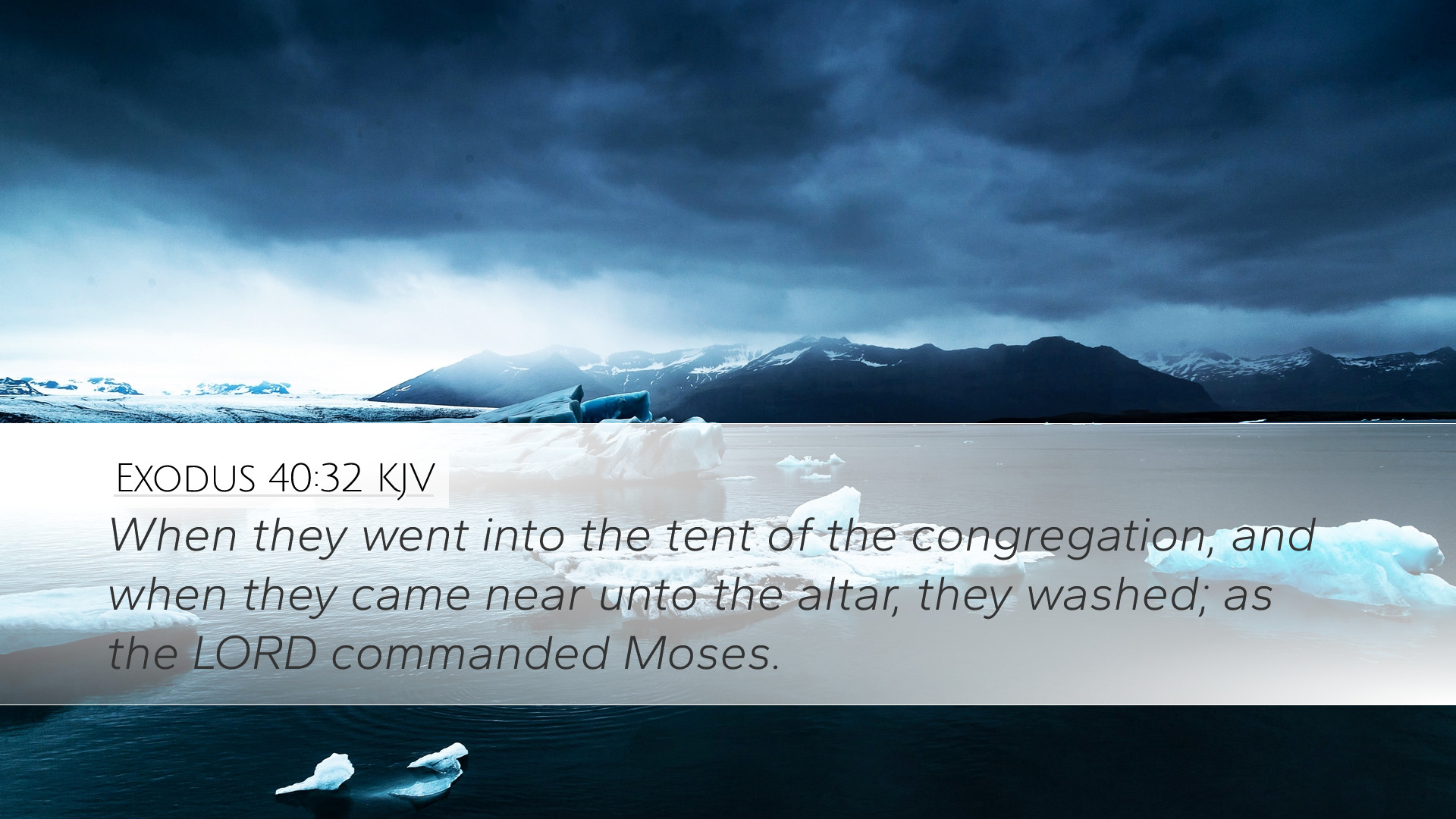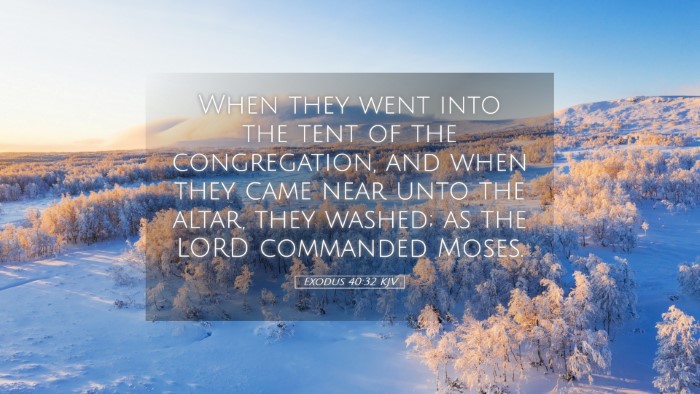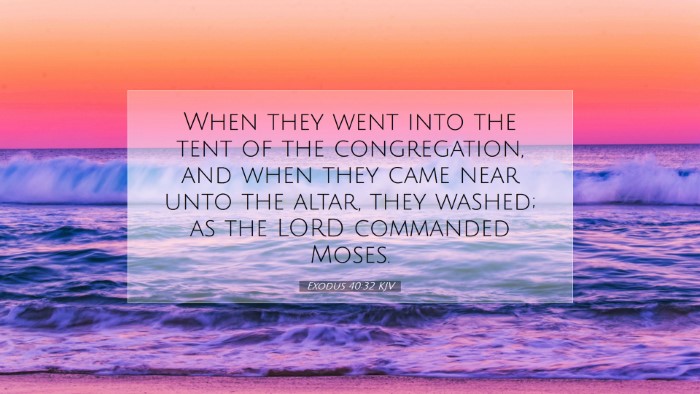Exodus 40:32 - Commentary
Verse: “When they went into the tent of the congregation, and when they came near unto the altar, they washed; as the Lord commanded Moses.”
Introduction
The verse of Exodus 40:32 serves as a vital component in the description of the tabernacle services. As the Israelites prepared to engage in worship at the designated place God had ordained, this passage encapsulates significant themes of holiness, obedience, and divine instruction.
Contextual Background
In the final chapters of Exodus, the narrative emphasizes the construction of the tabernacle and its associated furnishings. God gives Moses meticulous instructions regarding the tabernacle's setup, underscoring the need for holiness in approaching God's presence. Exodus 40 represents the culmination of these instructions and the establishment of the communal worship setting.
Commentary Insights
Matthew Henry's Commentary
Matthew Henry emphasizes the necessity of purification before approaching the altar. He articulates that the act of washing symbolizes preparing oneself to meet God. Henry highlights that God is a holy being who requires His people to be ready for His service. This washing establishes the principle that without sanctification, no one can approach the holy.
Albert Barnes' Notes
Albert Barnes focuses on the ritualistic dimensions of the washing as both a physical and spiritual act. He explains that the washing communicates an outer cleansing that reflects an inner state of purity. The emphasis is on the obedience to God’s commands, which reflects a dvine orderliness and the seriousness of entering into service before God. Barnes notes that this instruction was not arbitrary but rather a designed part of a covenantal relationship with God.
Adam Clarke's Commentary
Adam Clarke provides a more detailed exposition on the practical implications of washing. He elucidates the necessity for the priests to undergo purifications as it relates to their roles in the community. Clarke argues that the act of washing serves as a metaphoric precursor to the spiritual washing that comes through Christ, highlighting how the New Testament fulfills these Old Testament types and shadows.
Theological Implications
This verse draws several theological insights relevant for pastors and scholars:
- Holiness of God: The divine requirement of purity helps us to understand the nature of God. God is inherently holy, and His call to holiness upon His people signifies a relational dynamic wherein purity is necessary to dwell in His presence.
- Obedience as Worship: The meticulous attention to divine instruction reflects a broader theme throughout Scripture where obedience is shown to be an expression of worship. The priests’ actions obey the commands as a reflection of their reverence for God.
- Rituals and Spirituality: The ritual washing invites deeper reflection on how physical acts can signify spiritual truths, anticipating the full revelation of Jesus Christ who ultimately cleanses His people.
Practical Applications
In today's context, the themes present in Exodus 40:32 can be richly applied:
- Personal Purity: Just as the priests had to wash before entering the tent, believers today are called to maintain personal holiness and purity in their lives as they approach God.
- Corporate Worship: Preparation for communal worship should reflect a collective desire to honor God in spirit and truth, acknowledging that corporate worship involves both individual and communal readiness.
- Obedience to God’s Word: Pastors and leaders should articulate the importance of not just hearing God's Word but responding in obedience, as demonstrated by the priests in their adherence to God’s command.
Conclusion
Exodus 40:32 encapsulates a pivotal moment in Israel’s worship life, inviting belief in the importance of purity and obedience. As gleaned from the reflections of Matthew Henry, Albert Barnes, and Adam Clarke, this verse is not merely historical but deeply spiritual, urging the faithful toward preparation for divine encounters. The reflections on this scripture provide a rich foundation for preaching, teaching, and personal application.


